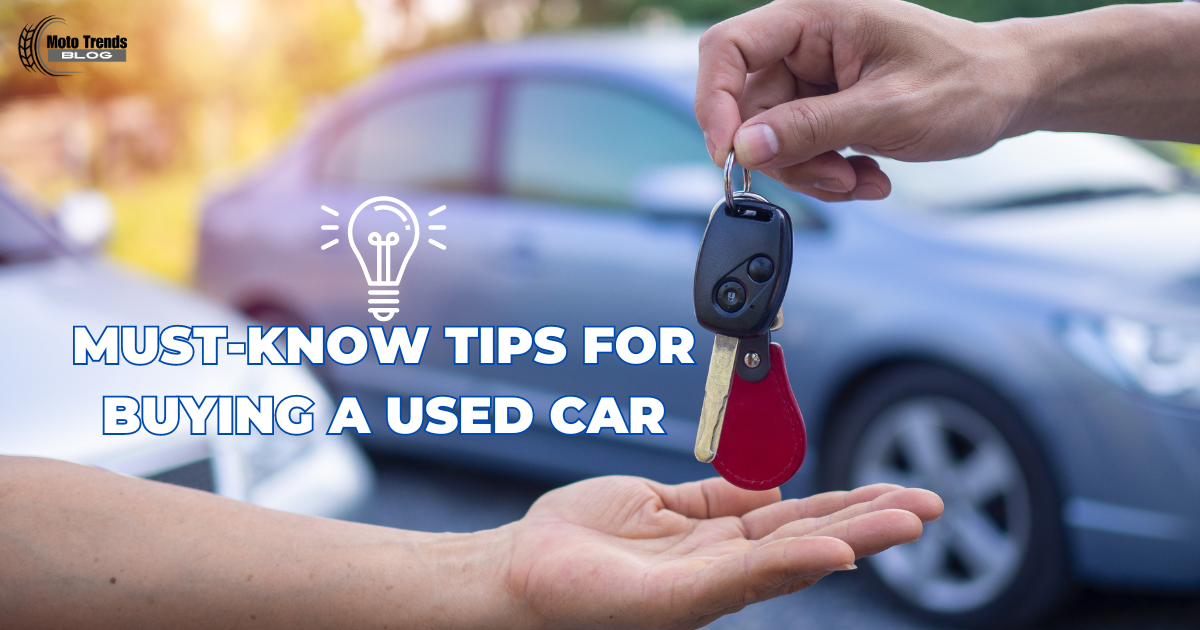Buying a car is an exciting but challenging experience. For many, choosing used cars may be a financially sensible move, but it is also filled with uncertainties. However, with the right information, you can navigate the world of used cars like a pro and drive with confidence.
In this comprehensive guide, we will take you through every step of the used car buying process. From understanding why buying used cars makes sense to setting a realistic budget, finding the best deals and avoiding common pitfalls – this guide will make your journey easier and help you save thousands.
1. Why Buy Used Cars?
Buying used cars has become a popular choice among budget-conscious buyers for several reasons. Let’s understand its main benefits:
Cost Savings
New cars lose their value as soon as they leave the dealership, depreciating around 20-30% in their first year. This means that a 3 or 4-year-old used car can be significantly cheaper than a new car while also having many modern features. Buying a used car allows you to get more for your money without compromising on quality.
Variety
When you buy used cars, you get a variety of models and trims at different prices. Instead of being limited to just the newest models in the market, you can look for cars with features that suit your preferences and needs.
Lower Insurance Premiums
Used cars generally have lower insurance rates than new cars. Since the vehicle has less value, insurers charge you less for coverage, which means you keep saving.
2. How to Set Your Budget
Before you dive into the used car market, it’s important to set a budget. The last thing you want is to overspend or get stuck with a high monthly payment. Here’s how you can budget smartly:
Down Payment and Monthly Payments
Experts recommend that you put down at least 20% of the car’s price as a down payment. Also, make sure your monthly payment is no more than 10-15% of your net monthly income. Don’t forget to factor in maintenance, repairs, and insurance costs.
Hidden Costs
Buying a used car involves more than just the sticker price. You also need to consider additional costs like insurance premiums, taxes, registration, and repairs required after purchase. It’s important to keep these in mind when setting your budget.
Be Realistic
While it may be tempting to go for the most exotic model, be honest about how much you can afford. Remember, the lower the price of the car, the more room you have for future maintenance and upgrades.
3. Where to Find the Best Deals on Used Cars
Once you’ve set your budget, it’s time to start looking for the perfect used car. Here are some of the best places to start your search:
Certified Pre-Owned Programs (CPO)
Certified pre-owned cars are vehicles that have undergone rigorous inspections and meet specific manufacturer standards. CPO cars come with extended warranties, which provide peace of mind. They’re typically in very good condition and offer a safer alternative to buying from private sellers.
Dealerships vs. Private Sellers
- Dealerships: Buying from a dealership may be more expensive, but dealerships often offer certified pre-owned vehicles, warranties, and financing options. Plus, you’ll have legal protection and quality assurance.
- Private Sellers: If you want to save money, buying from a private seller may be a better option. However, it comes with more risk, as there’s no guarantee that the car is in good condition. Be sure to have the car thoroughly inspected or hire a mechanic before finalizing the deal.
Online Marketplaces
Websites like CarDekho, Carwale, OLX, Car Trade and Facebook Marketplace offer a wide range of used cars. Online platforms allow you to compare prices, filter according to your budget and search by location. However, always be cautious when buying a car online – ask for a vehicle history report and arrange for a personal inspection.
4. What to Check Before Buying a Used Car
Buying a used car carries some risks, but by taking the proper precautions, you can avoid future problems. Here’s a list of things to check:
Vehicle History Report
Always request a vehicle history report. These reports provide details about past accidents, previous owners, service history and any recalls. This will give you information about how well the car was maintained and whether its title is clean.
Inspection Checklist
- Mileage: Cars with lower mileage generally have more time left. Aim for cars that average 12,000 to 15,000 miles per year.
- Engine: Check for oil leaks, check the condition of the engine and listen for any unusual sounds during the test drive.
- Tyres: Worn tyres can indicate that the car hasn’t been properly maintained.
- Transmission and Brakes: Make sure the car shifts smoothly without any grinding noises and brakes effectively.
- Interior Condition: Check the inside of the car for any signs of wear, stains or unpleasant odors.
Test Drive Tips
The test drive is one of the most important steps in the car-buying process. Drive the car on different types of roads—highways, city streets and even parking lots. Pay attention to how the car handles, how responsive the brakes are and whether the steering is smooth. Test the electronics such as the lights, air conditioning and audio system.
5. Negotiating the Best Price
Once you find a car you like, it’s time to negotiate the price. Here’s how you can get the best deal:
Research the Market Value
Use a online available tools to determine the fair market value of the car. This information puts you in a better position to negotiate.
Negotiation Tactics
- Start Low: Start at a price slightly below market value. This gives you a chance to negotiate while still staying within your budget.
- Point Out Issues: If the car has any cosmetic issues or needs repairs, take advantage of these to lower the price.
- Be Ready to Walk Away: If the seller doesn’t compromise on the price or you have any doubts about the deal, don’t hesitate to walk away. There are plenty of other used cars available.
6. Financing and Paperwork
After you’ve agreed on a price, it’s time to sort out the financing and paperwork. Here’s what you need to know:
Loan Options
- Banks or Credit Unions: These tend to offer lower interest rates than dealership financing.
- Dealership Financing: More convenient, but can come with higher rates. Shop around and get pre-approved for a loan before you visit the dealership to have more negotiating power.
Required Paperwork
Make sure all paperwork is in order before you finalize the purchase:
- Bill of Sale: This document records the transaction and must be signed by both parties.
- Title Transfer: The seller must provide you with the title of the car. Check for liens or any unresolved debts.
- Registration: Make sure the car is properly registered in your name.
Avoiding Scams
Be wary of deals that seem too good to be true. Common red flags include sellers who pressure you to pay in cash, sellers who don’t let you inspect the car, and sellers who refuse to show the car’s history.
7. Post-Purchase Maintenance Tips
Now that you’ve purchased your car, here’s how to make sure it stays in good condition:
Regular Maintenance
Follow the recommended maintenance schedule for oil changes, tire rotations, and other routine services. Skipping routine maintenance can lead to bigger, more costly problems later on.
Warranties and Service Plans
If your used car came with a warranty, make sure you understand what’s covered and for how long. Some dealerships offer extended warranties or service plans to cover major repairs, which can provide peace of mind.
Maintaining Resale Value
To maintain your car’s resale value, keep it clean, don’t smoke in the car, and fix any minor cosmetic issues as soon as possible. Keeping a record of all maintenance and repairs will also help you when it comes time to sell or trade-in your car.
8. Conclusion
Buying used cars isn’t a gamble. With the right preparation, you can find a reliable vehicle that fits your budget and lifestyle. Remember to research, negotiate, and be thorough in your inspections to make sure you get the best deal.
Whether you’re buying your first car or upgrading to something better, following this guide will help you avoid costly mistakes and drive away in the car you love.
Ready to start your search for the perfect used cars? Keep these tips in mind and hit the road with confidence!

